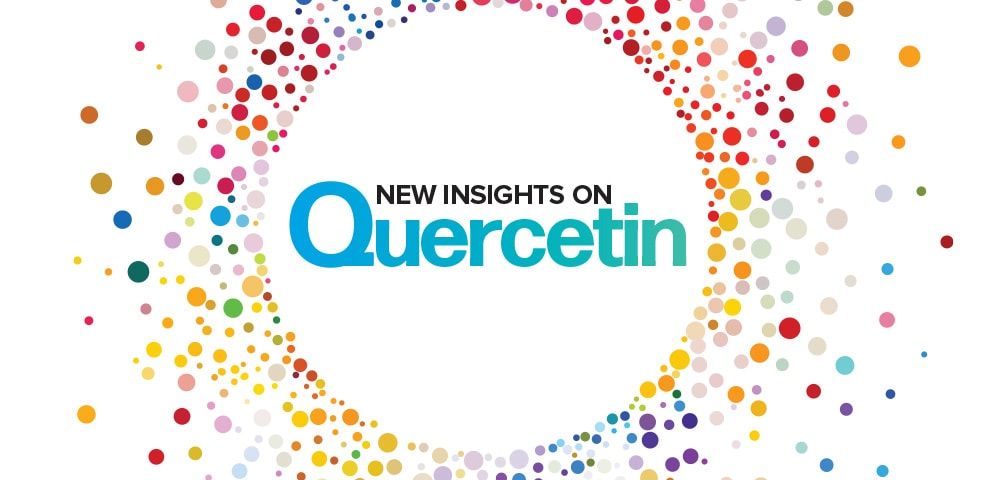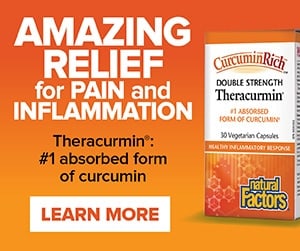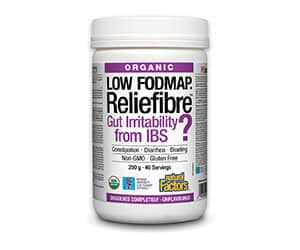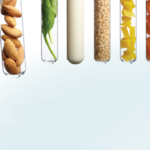
Michael T. Murray, ND is widely regarded as one of the world’s leading authorities on natural medicine. Dr. Murray has written over 30 books promoting health, including the best-selling Encyclopedia of Natural Medicine. For more information, go to DoctorMurray.com
Quercetin is a natural compound that has recently received much attention because of scientific studies of its effects on immune-system health. Two recent human studies showed that a bioavailable form of quercetin produced outstanding results in supporting immune function in people with a potentially severe health challenge.
With all the research emerging with quercetin in boosting immunity, it is easy to be excited and focus only on this aspect. But this remarkable plant compound produces many other health benefits to highlight.
First, if you are not familiar with quercetin, it is a flavonoid – one in a group of over 8,000 plant pigments primarily responsible for the colours of many fruits and flowers.
Quercetin activates the longevity gene
Quercetin exerts several anti-aging effects, but I want to highlight one of the most important and exciting ones. Quercetin can activate what is referred to as “the longevity gene.” Because this gene is part of the DNA found in every cell in the body, quercetin has an incredible potential to help every cell function better and live longer. The biochemistry is extremely complex, but I will do my best to make it understandable so you can appreciate it.
The longevity gene provides the blueprint for our cells to produce an enzyme abbreviated as NQO1. This enzyme is responsible for several critical reactions in cells. Too little NQO1 is associated with impaired detoxification, lower energy levels, and altered cellular function. One of the chief functions of NQO1 is maintaining levels of the most active forms of vitamin B3 in cells, abbreviated NAD+ and NADP+. Dietary supplements, like nicotinamide mononucleotide and nicotinamide riboside, are being promoted as NAD+ and NADP+ level boosters, but taking quercetin may be a better solution.
Among its critical reactions, NQO1 works with the NADPH form of vitamin B3 to regenerate active glutathione – the cell and mitochondria’s primary antioxidant. Glutathione is one of the most important compounds in the cells of any living organism. It is critical to fighting inflammation, the aging process, and cellular dysfunction. In the process of activating glutathione, NQO1 also produces NADP+, which is one of the most active forms of vitamin B3 along with NAD+.
NQO1 also works with the vitamin B3 form NADH in converting CoQ10 from its inactive form (ubiquinone) to its active form (ubiquinol), and in this reaction, it produces NAD+.
Here is an essential factor to understanding the proper expression of the longevity gene. When NQO1 levels are low, this leads to lower levels of the active forms of glutathione, CoQ10, NAD+, NADP+, and several other very important compounds in our cells.
It is a serious situation that can lead to:
- A decline in metabolism, leading to weight gain and poor blood sugar control
- Fatigue
- Reduced blood vessel health
- Poor detoxification and liver health
- Aging-related muscle loss (sarcopenia)
- Aging-related memory loss and mental decline
- Aging-related loss of sight and hearing
Research shows the benefits of taking dietary supplements to increase the active forms of glutathione, CoQ10, and NAD+. Still, for most people, the answer to declining levels of these anti-aging compounds is to boost the “longevity gene” by taking quercetin.
Quercetin can provide this boost directly by increasing the expression of the NQO1 gene. It also works indirectly by helping to fight the chronic inflammation that can reduce the expression of the NQO1 gene.
Experimental studies show that quercetin has the most powerful health effects of any flavonoid, especially in fighting aging and inflammation.
Quercetin fights “inflammaging”
Chronic inflammation plays such a key role in the aging process that the term “inflammaging” is often used to express the relationship. One of the consequences of chronic inflammation is an increase in a cellular enzyme called CD38. This enzyme destroys NAD+ and other forms of B3 as well. This leads to all of the issues listed above.
To deal with reduced NAD+ associated with aging, many people look to supplements like nicotinamide mononucleotide and nicotinamide riboside. However, it may make more sense to focus on reducing this cellular enzyme called CD38 that destroys NAD+ and NADP+. How is this done? Well, quercetin has shown a strong ability to reduce the activity of CD38.
Quercetin also fights the inflammation that raises CD38 by activating a compound known as Nrf2. This compound orchestrates a complex regulatory network that influences metabolism, inflammation, mitochondrial function, and immune responses.
Nrf2 has incredible anti-aging effects and has been described as the “guardian of lifespan,” as it protects the cells against damage, aging, and malfunction. One of the reasons Nrf2 affects these benefits is that it is a powerful activator of NQO1.
Quercetin increases Nrf2 and helps it do its job in promoting cellular health, including adding another way to boost the longevity gene and NQO1 levels.
Here is the takeaway from all this biochemistry: quercetin helps cells function better by preserving and restoring mitochondrial function. Quercetin’s beneficial effects also include restoring the cells so they can produce energy and regulate themselves properly.
Getting the most from a quercetin product
There is one big problem with regular quercetin: it is poorly absorbed. To address the issue of poor absorption, I recommend taking Quercetin LipoMicel™ Matrix. It is produced through a unique process that uses natural compounds to enhance its absorption by as much as 10 times compared to regular quercetin powder.
During these times of increased need to support our immune function and fight the effects of aging, I recommend taking two softgels of Quercetin LipoMicel Matrix daily. Two softgels provide 500 mg of quercetin, which is equal to about 5 000 mg of regular quercetin powder.
It is also vital to increase dietary sources of quercetin, such as onions, apples, berries, citrus, cherries, green tea, broccoli, and green leafy vegetables. These foods are not only rich in quercetin, but in other essential nutrients and plant compounds as well.














